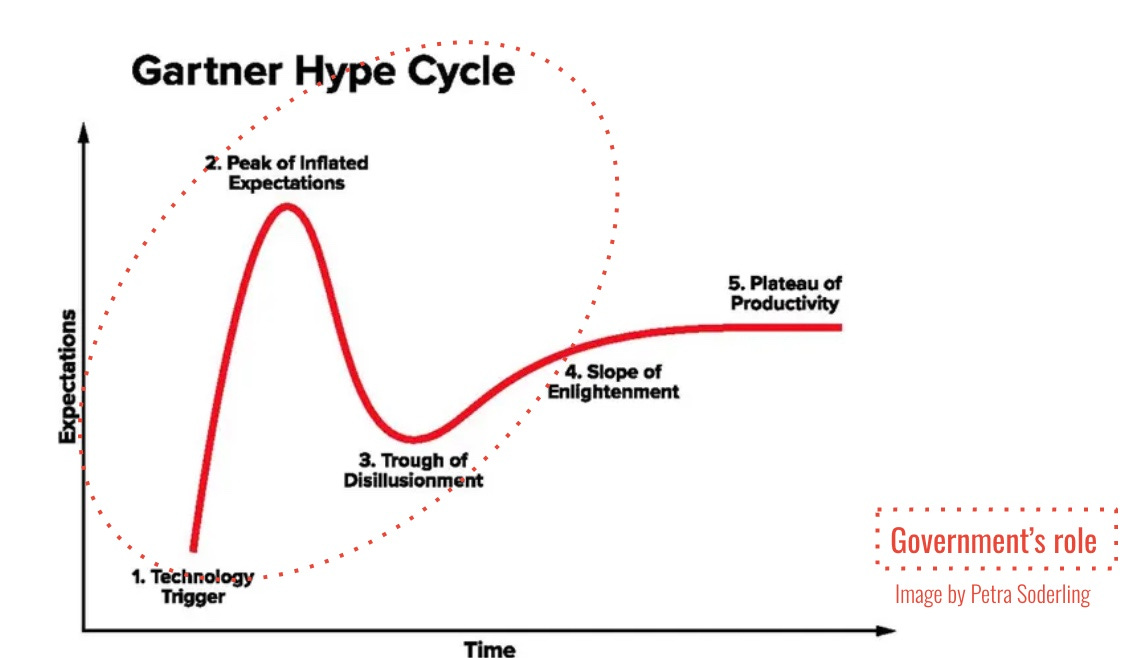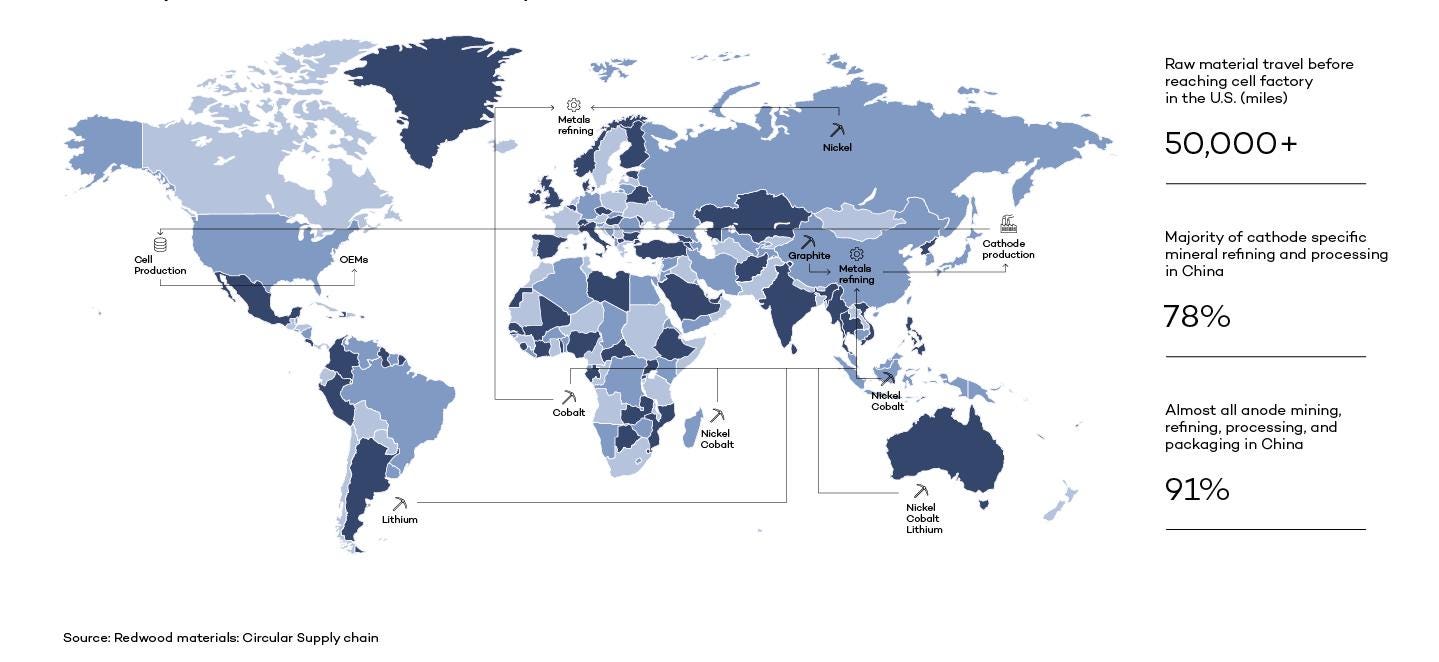You can't Isolate yourself in DeepTech
Especially if you're cutting your own science at the same time
Deep technologies, or emerging technologies, are the backbone of any region’s economic growth. Together with infrastructure and education, they create the foundation for any nation to be able to build innovative products, to launch new services, to attract ambitious achievers, to nurture startups so that we can create jobs, pay taxes, and start all over again by investing in more research.
If you’re not familiar with the Gartner Hype Cycle, it’s a beautiful rollercoaster graph that tells the story of a nascent technology, nurtured in labs, getting its sea legs with R&D, and breaking into the mainstream.
Here’s an image from my recent presentation at the IEEE sponsored International Conference on Intelligent Control, Computing and Communications (IC3), organized by GL Bajaj Group of Institutions, in Mathura, UP, INDIA. The topic of my presentation was The Government’s Role in Quantum Technologies, but you can replace ‘quantum’ with any technology. The conclusion is, that you need government investment in the early stages of these technologies, private VC are not willing to take big risks like these.
Science is international, research is international, high skilled talent and knowledge workers are global. If your strategy is to do all of it domestically, you are digging the ground beneath your feet.
Not to mention if you only want certain types of domestic people to be working on new and innovative stuff … but that’s a topic for a later day.
Supply chains, R&D collaboration, customers
It’s understandable that countries want to regulate and control critical technologies that affect their national security, or the safety and well being of their citizens. They can use a number of measures to do this, including but not limited to export controls, trade agreements, laws restricting their citizens to work for tech companies in another country, controlling the flow of people to and from certain countries, and by barring certain nations from owning or operating companies in their country.
But these regulators need to remember that their domestic companies need to buy parts internationally, they need to license IP internationally, they need to co-develop internationally, and they need to hire the best talent in order to become the best.
Just look at this map of the sources and movement of battery materials, traveling over 50,000 miles before reaching the battery factory in the U.S. Then multiply “battery materials” with every other material, component, and substance you need to build emerging tech products.
It’s not hard to see how protectionism, turning into isolationism, is not a good idea.
And this was just procurement. These companies also need to be selling their products and services to other countries, so if your protectionism alienates your customers, who is going to buy all of those tech products?
So what am I doing about it?
For this reason, I will continue to work for Trans-Atlantic relationships even harder than before. You will see and hear and my guests me in these newsletters, on the Deep Pocket podcast, on LinkedIn, and YouTube - and now also on Bluesky helping to keep the discussion alive, and by providing researched facts.
Upcoming events
I will be in Luxembourg during March 19-21, 2025 in EU meetings.
I will be in the QSI’s International Quantum Strategy day in April, 2025
I will be in the Quantum World Congress, Washington DC in September 16-18, 2025.
I will be on Deep Pockets podcast every second week.
From the Archives
Transatlantic relationships in Deeptech. Deep Pockets podcast episode with IQM’s Milja Kalliosaari, recorded in November 2024.
EU’s AI Act; What Where Who Why? Deep Pockets podcast episode with Meeri Haataja, CEO of Saidot. This episode was recorded in August, 2024
Trade Agreements with Gabrielle Gerbaud, Executive Director of the Trade Office in Minnesota. Recorded in 2023.
Government and Innovation: The Economic Developer's Guide to Our Future
My book from 2023 discussing how local, regional, and national governments can use existing instruments to steer their economies to include more innovative industries that provide higher economic value-add.
Government and Innovation: The Economic Developer's Guide to Our Future
Audiobook narrated by author available at Audible
Yes, I’m on Substack. I understand there are ethical concerns. I’m looking for an alternative that ticks all the boxes and offers a smooth transition.






